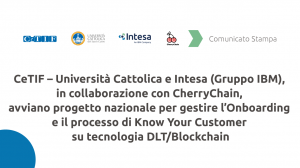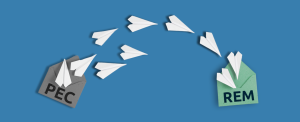Intesa, a Kyndryl Company, now offers qualified electronic seals for EPREL registration and verification
E-seals will become mandatory for manufacturers and distributors beginning in
March of 2022.
Turin, 1 March 2022 – Intesa, a Kyndryl Company, a company that accompanies businesses on their journey towards digital transformation, with statutorily compliant solutions for process-digitalisation, is now an issuer of qualified e-seal (QeSeal) for purposes of EPREL identification and registration.
Beginning in March of 2022, all manufacturers and distributors of electronics must authenticate their identity through the website for EPREL (EU Product Database for Energy Labeling). Electronics must be registered on this EU database to receive an energy label, which is now mandatory before any such product can be marketed within the EU.
After registering on EPREL, manufacturers and distributors will receive a certificate (in PDF format) pre-signed by the EU, onto which they must place their organisation’s qualified electronic seal before uploading it back onto the portal.
Seals are required first and foremost to prove the existence and identity of the organisation, and report its registered office within the EU/EEA or Northern Ireland. The seal also serves to identify the natural person authorised to represent the business (supplier admin), and to act on behalf of the organisation to register the products on EPREL.
Qualified e-seals issued by Intesa, an AgID-accredited Certification Authority that joined the ranks of European Qualified Trust Service Providers authorised to issue qualified certificates for electronic seals (e-Seals) in June 2020, can now be used by manufacturers and distributors of electronic devices to register and verify their identity on EPREL.
“At the time Intesa secured its accreditation as an issuer for qualified e-seals, that is in June of 2020, it was an emergent tool in the field of trust services”, noted Giuseppe Mariani, General Manager of Intesa. “With the introduction of this new regulatory duty, the European Union has made clear both the current significance, and the future potential for these services in the European market. We hope these will continue to appear in EU directives, so that a bona-fide single market, one that is at once secure and certified, can be created in the digital arena”.
Qualified electronic seals are, indeed, mandated by the eIDAS European Regulation on digital identity, and are comparable to a “qualified electronic signature” held in the name of the company or organisation wishing to electronically seal any business document, information flow, or content for the purpose of certifying its provenance, authenticity, or integrity. Any document, or other content, sealed using a qualified electronic seal provides robust, legally compliant evidence of the provenance and substance of the signed content.



